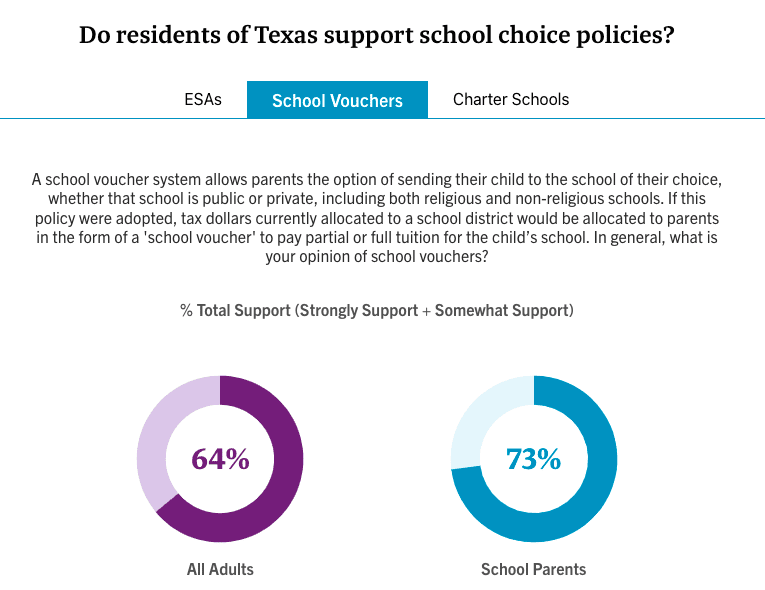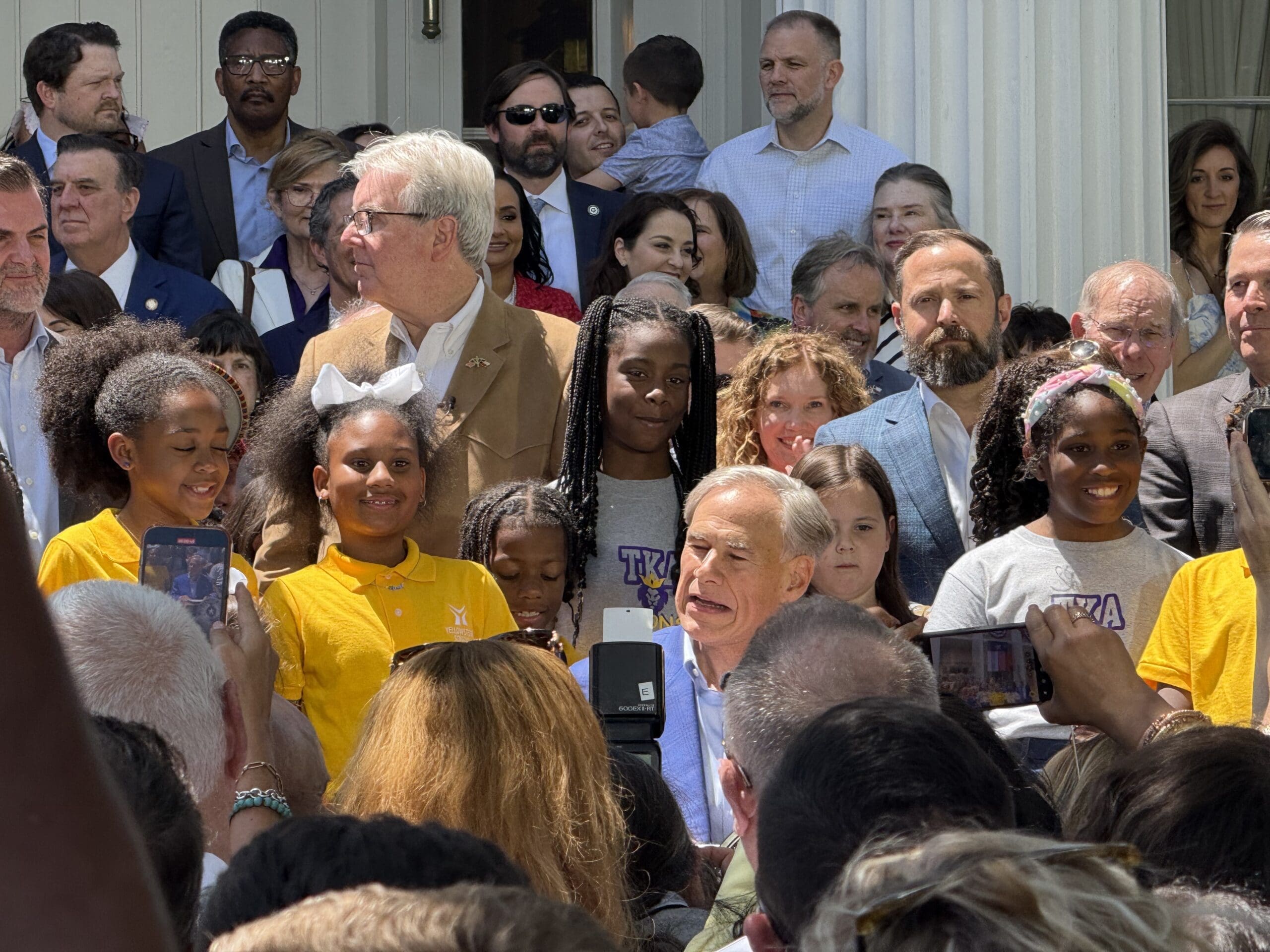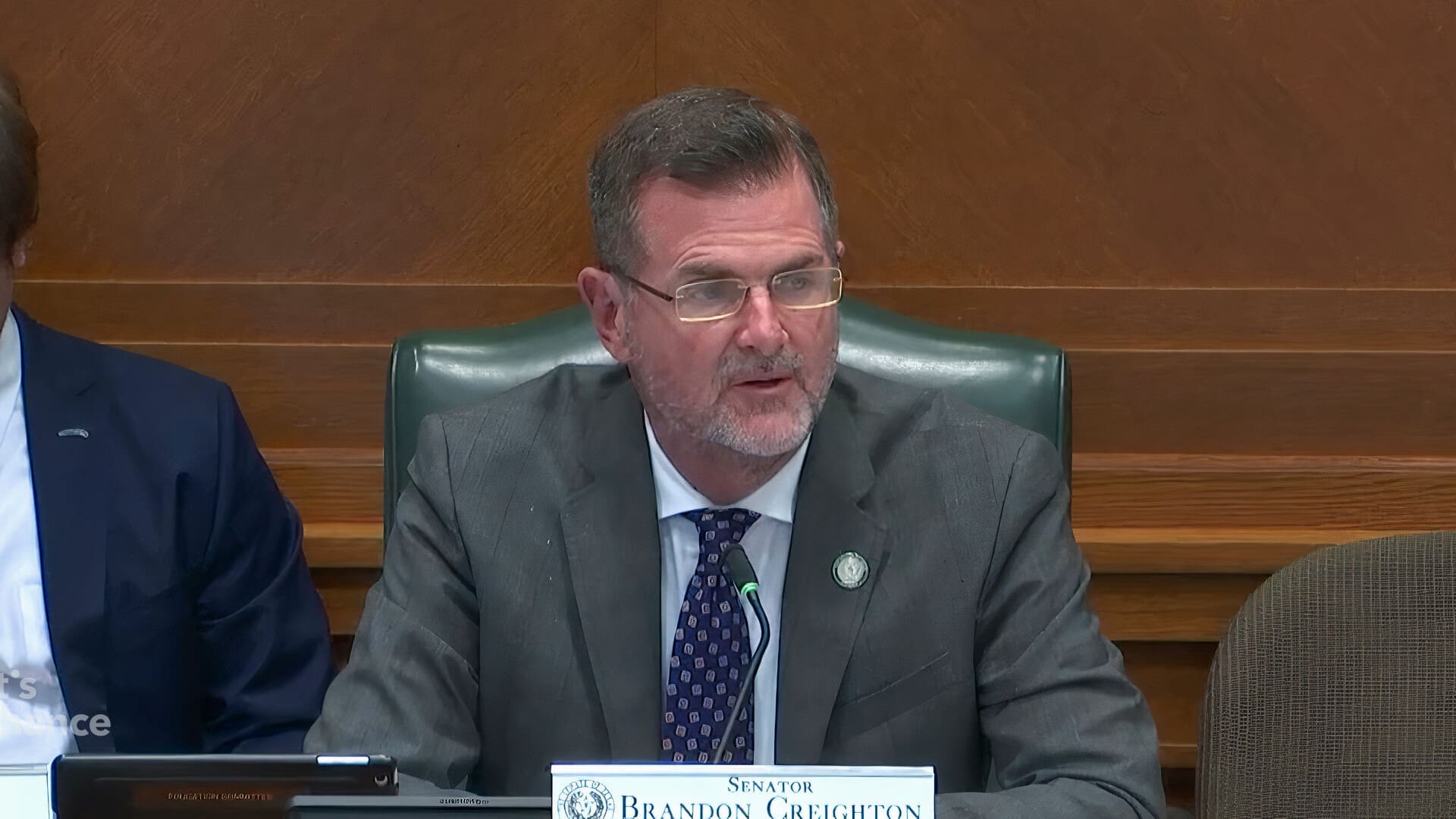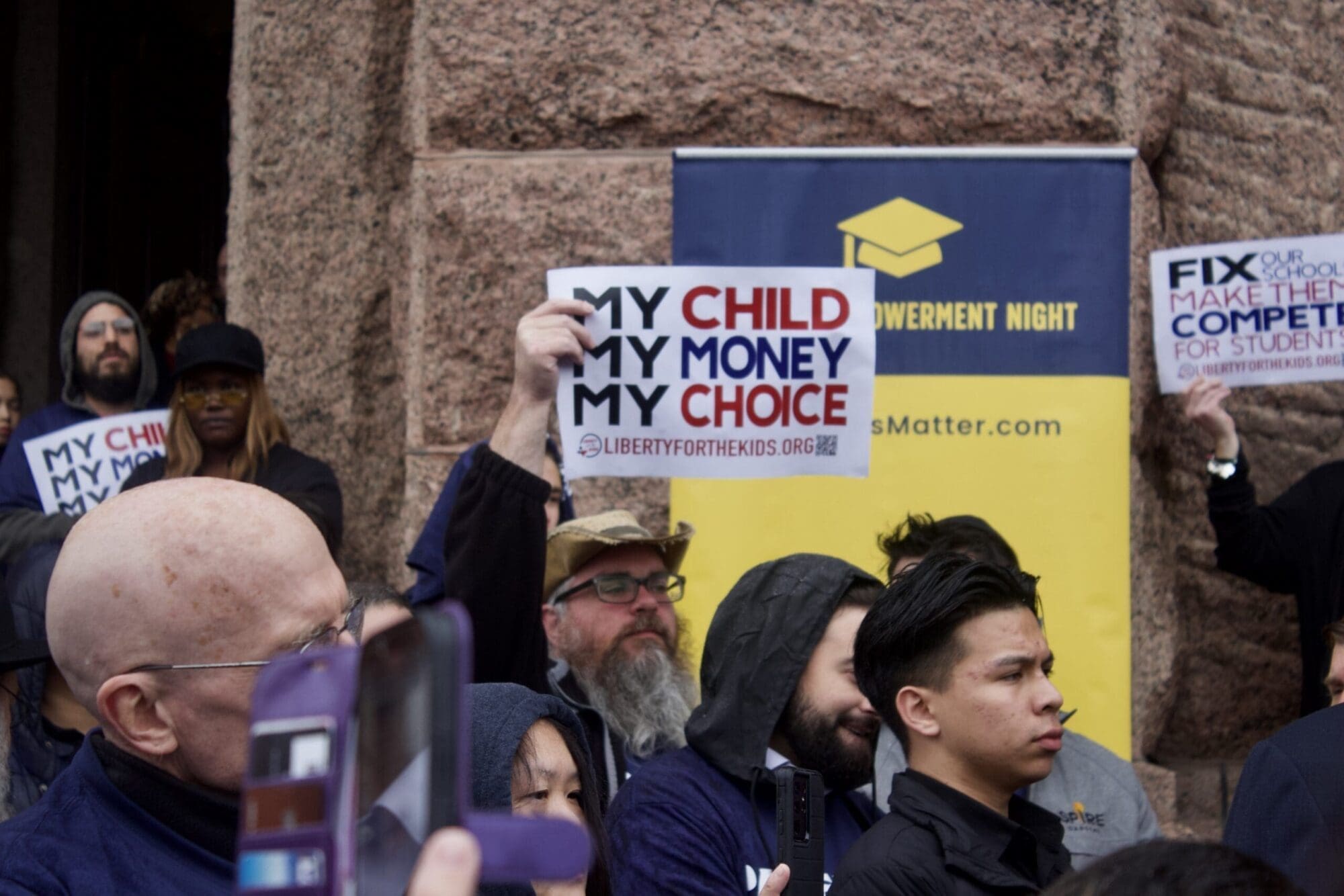Arizona’s governor just signed a ground-breaking universal school choice bill that’s being hailed as the “gold standard” for parent empowerment and education freedom.
The new law empowers all families to pursue the best education for their children by allowing funds allocated for education to follow students.
Now Texans are calling for their state to pass a similar measure, helping parents free their kids from failing government schools that focus less on academic education and more on politicized indoctrination.
Some Texas lawmakers are already on board.
“Arizona has been a leader in child education freedom for years,” State Sen. Bob Hall (R–Edgewood) told Texas Scorecard. “Their recent adoption of a child education freedom program to offer access to Empowerment Savings Accounts to virtually all students is the gold standard of funding students, rather than systems.”
“Texas students deserve the same consideration as their counterparts in Arizona,” Hall said. “Parents should be empowered to choose the best school to meet the needs of their child.”
The Republican-controlled Texas Legislature has repeatedly failed to pass school choice plans in the past, and many Republicans even voted with Democrats last year to stop state funds from going to help families pay for non-government schooling.
Yet expectations are high as we head into the 2023 legislative session.
What Is School Choice?
School choice allows families to decide how and where to educate their kids.
Today’s school choice debates focus on funding—helping families have the financial freedom to pursue the best education for their children, regardless of where they live or how much money they have.
Choice lets parents use tax dollars designated for K-12 education for whatever type of schooling best fit their needs: public school, private school, charter school, home school, or any other learning environment. With school choice, the funds follow the child.
School choice plans offer families assistance with tuition and related expenses through education savings accounts, vouchers, scholarship tax credit programs, or individual tuition tax credits.
“School choice takes a family empowerment approach to education policy,” says economist Alexander Salter. “School choice puts students first.”
According to the American Federation for Children, 30 states have private school choice programs. Texas isn’t one of them.
Texans Want School Choice
School choice plans that fund students over systems have never been more popular, thanks to a surging parent movement.
Fed up with government schools—with COVID closures and academic performance failures; politicized policies and curricula focused on race, gender, and sexualizing kids; and wasteful spending and corruption—more parents than ever want to send their students, and their tax dollars, elsewhere.
Recent Morning Consult polling in Texas shows 68 percent of adults and 77 percent of parents with school-age kids support education savings accounts.
Voucher programs are backed by 64 percent of Texans and 73 percent of parents.
National polls show the strongest jumps in support for school choice among young adults as well as Hispanic and Black adults.
School choice is also a Texas GOP legislative priority for 2023, part of the platform to protect parental rights:
Parents are the primary decision-makers for their children in all matters. This authority shall be protected as an inalienable right. This shall include the choice of schooling where the money follows the child without strings attached, and enforcement and penalty mechanisms when parents’ rights are violated. The right to education shall be free from any social theories.
Republicans are expected to keep control of the Texas House and Senate next session, and both Gov. Greg Abbott and Lt. Gov. Dan Patrick have already signaled support for school choice legislation.
Abbott said in May, “Empowering parents means giving them the choice to send their children to any public school, charter school, or private school with state funding following the student.”
Yet Abbott endorsed multiple GOP primary candidates for state House who oppose school choice, while House Speaker Dade Phelan touted his teachers union endorsement, leaving Texans to wonder if the House will again stifle school choice legislation, as it has for several sessions.
While school choice was a Republican priority last year as well, the House approved a Democrat budget amendment stipulating that no appropriated money could be used to “pay for or support a school voucher, education savings account, or tax credit scholarship program.”
State Rep. Brian Harrison (R–Waxahachie) says every Texas child deserves a quality education. “Shouldn’t we use every tool available to us?”
“It’s embarrassing that so many other states, like Arizona and Florida, are empowering parents with education freedom while the liberal teachers unions—who hate everything conservatives stand for—have successfully stopped it in Texas,” Harrison told Texas Scorecard. “It’s past time Texas leads on this, and I look forward to getting school choice passed next session.”
Arizona’s School Choice Model
Arizona adopted a limited education savings account program in 2011—the first state in the country to offer ESAs.
House Bill 2853 expands the state’s existing program, allowing all families to access funds equal to 90 percent of the money the state would have allocated to a public school—about $6,800 per student—plus additional funds for special-needs students.
Families can use ESAs to pay for private school tuition, textbooks, tutoring, homeschool materials, online learning, and other education-related expenses such as public transportation.
Arizona’s law also addresses the “strings” that many school choice opponents worry will be attached to ESA funds. It specifically prohibits any government “control or supervision over any nonpublic school or homeschool,” and says a school that accepts ESAs is “not an agent of the state or federal government” and “shall not be required to alter its creed, practices, admissions policy or curriculum.”
Schools that accept ESAs cannot discriminate on the basis of race, color, or national origin.
School Choice Critics
Members of the public education lobby, which includes Republicans and Democrats, are the loudest critics of school choice plans that allow parents to spend their children’s education dollars anywhere other than government schools.
The Texas Association of School Boards, a taxpayer-funded lobbying group representing the interests of public school districts, opposes “any transfer of public education funds through the use of vouchers, savings accounts, or tax credits” as part of its legislative advocacy agenda.
Teachers unions like the Texas State Teachers Association (affiliated with the National Education Association) and Texas AFT (affiliated with the American Federation of Teachers and AFL-CIO) also oppose all school choice plans that fund non-government schools.
Conservative critics of school choice say accepting public money will subject private schools and homeschoolers to the same curriculum and policy mandates that have soured parents on public schools, pointing to federal regulations as the ultimate source of the mandates.
Texas can follow Arizona’s model to prohibit any government control, but federal strings may require more cutting. Hall suggests Texas forego federal funds tied to federal mandates.
Families can also forego the optional school choice plans and continue to pay out of pocket for private or home schooling in addition to paying taxes into the public system.
Other critics raise concerns about the quality of education provided by non-government schools. Proponents counter that parents know what’s best for their children, not the government.
A report by the pro-school choice Goldwater Institute documents the Arizona ESA program’s success in serving students across the socioeconomic spectrum, especially students from low-income families.
Some Texans want to end all government funding of education, but that would require amending the Texas Constitution, which requires the state “to establish and make suitable provision for the support and maintenance of an efficient system of public free schools.”
The Year of the Parent
School choice advocate Corey DeAngelis, an education policy researcher with the American Federation for Children, told Texas Scorecard parents have “woken up to the problems inherent in the one-size-fits-all government school system, and they vote.”
“Texas politicians would be wise to listen to parents this session,” he said, adding he’s keeping a close eye on Texas in 2023 to see if lawmakers follow the example set by Arizona and other states that have adopted plans to fund students instead of systems.
“Every single Arizona Republican lawmaker followed their party platform and sided with parents,” he said. “Texas Republicans have stronger majorities than Arizona in both chambers, so they should be able to do the right thing and empower Texas parents as well,” DeAngelis said.
The American Federation for Children has drafted model legislation for a variety of school choice programs.
Whether Texas lawmakers follow Arizona’s example, look to other models, or craft their own plan, it’s clear Texans expect Republicans to deliver real parental empowerment in the form of significant school choice legislation.
As Harrison says, “Families are counting on us.”
No ads. No paywalls. No government grants. No corporate masters.
Just real news for real Texans.
Support Texas Scorecard to keep it that way!









